IOS book “Beyond Binaries: The World of India and China” by Shastri Ramachandaran released
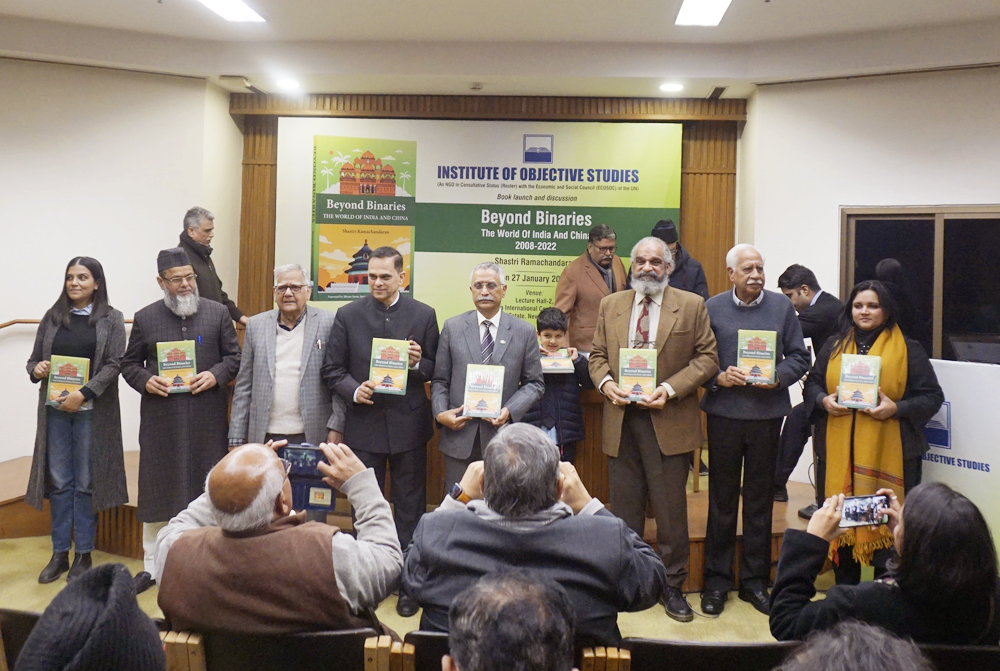
IOS book “Beyond Binaries: The World of India and China” by Shastri Ramachandaran released
New Delhi: The book titled “Beyond Binaries: The World of India and China (2008-2022)”, authored by the senior journalist, Shastri Ramachandaran and published by the Institute of Objective Studies, was released at an impressive function organized by the Institute at the lecture hall-2, India International Centre Annexe, Lodhi Estate, here on January 27, 2024.
In his welcome speech, senior journalist Raju Mansukhani, introduced the author, Shastri Ramachandaran. He said that Shastri was a journalist and columnist, writing on national and global affairs with special focus on Nepal, Sri Lanka and China. He worked for 50 years in positions from reporter to editor, with publications in India, China and Europe. The present book was a compilation of Shastri Ramchandaran’s writing produced for various Indian, Chinese and international magazines. He also highlighted the activities of the IOS.
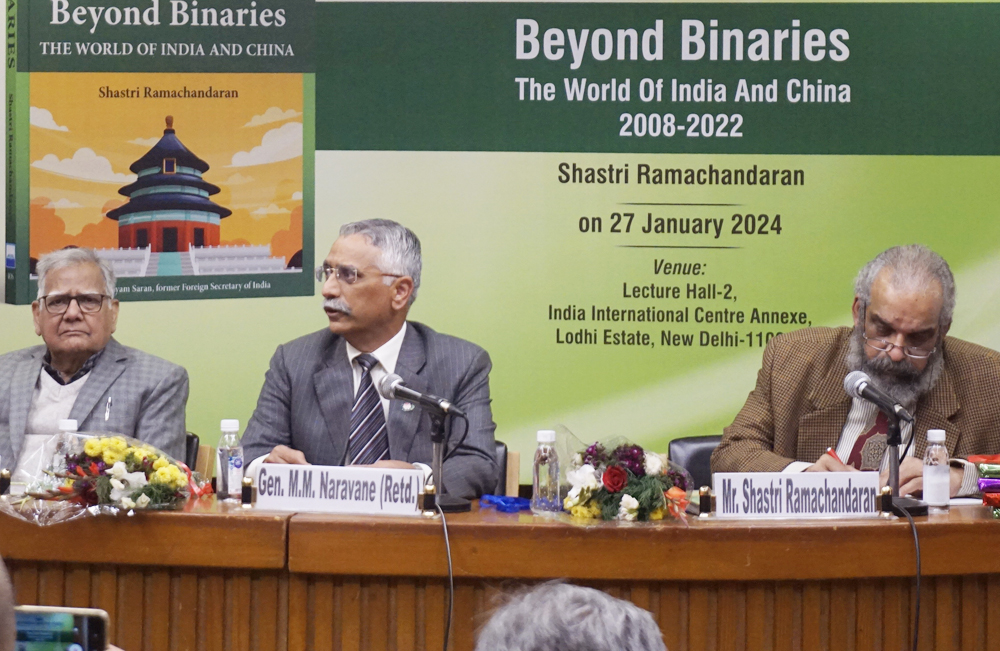
Releasing the book, former Chief of Army Staff, General M. M. Naravane said that the book was a welcome addition to several other books published earlier on a neighbor which had not been very friendly to India. He observed that sometimes people had a wrong perception about China. “As Indians, we have not read the country properly. This why we have a wrong perception about China, so is the case with our army”. He shared his experiences during his posting as Colonel on the India-China border. He lived there and worked there, and knew everything about that country. Local people were well receptive to him. He worked in the border areas, including the disputed Indo-China territories. He held that he had a different perception of the boundary issues of India with China. While dealing with China or other countries, one should see both sides of the spectrum. He said that the book gave a balanced perceptive of China. It became worth reading because of the foreword to the book was written by India’s former foreign secretary, Shyam Saran.
Gen. Naravane opined that the phase of “Hindi-Chini Bhai Bhai” and its aftermath necessitated confidence-building measures on the border question. He said that India witnessed Galwan incident and was pushed back to the wall. He referred to the Chinese foreign minister’s recent statement that the border question of China with India was part of its legacy. Where there was trade and commerce, disputes were bound to arise. Similarly, where there was a dispute, there was conflict. He said that the national interest of a country was paramount to determine her foreign policy. He further articulated that the friendly relationship between the two giants was in the interest of the entire world. At least a Chinese expert had called India a giant. China wanted India to recognize her as a big power. He categorically said that confrontation was harmful for both the countries. He remarked that China was bound to lose more if she took recourse to confrontation. Instead of toing the line of a big power, the line of governance should be followed, he concluded.
The message of the IOS Chairman, Dr. M. Manzoor Alam, who could not make it to the book-release function due to indisposition, was read out by Raju Mansukhani. In his brief message, Dr. Alam expressed pleasure that the function was being organized to discuss the contents of the book written by an eminent Indian journalist like Shastri Ramachandaran who had been a keen observer of Sino-Indian relations. His book was insightful and objective in analyzing relations between the two big neighbours. He was confident that the finer points of the book would be discussed threadbare.
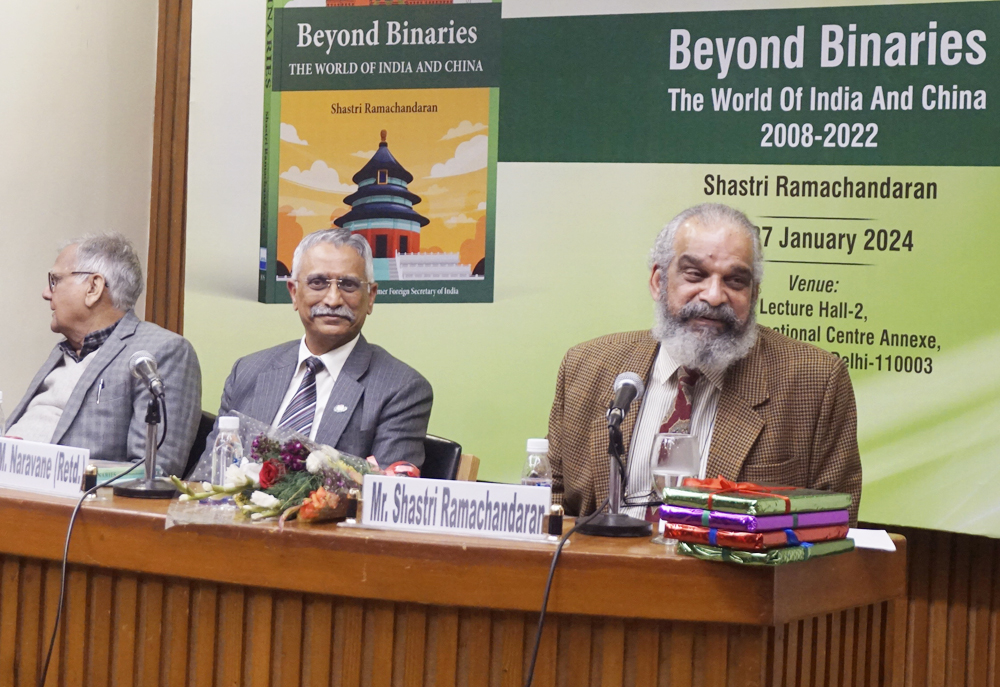
Speaking about his book, Shastri Ramachandaran explained that he tried to decode China. As he travelled China, he saw the Chinese society from close quarters. There were inside stories of that country which were not narrated in India. As a journalist, he felt that there was a need to do more work on China in order to correctly understand that country because there were many aspects of Chinese life and society which still remained unexplored. It should be studied how China managed its economic imbalance. There was a lot of trade balance between China and USA. China was the third largest economy of the world. Referring to the slowing down of Chinese economy, he said that currently, China strictly followed the policy of the three children norm. Chinese relations with India had past linkages by way of the spread Buddhism and Buddhist paintings. He said that as an optimist, he believed that India should show pragmatism and collaborate in several areas. Commenting on today’s journalism, he remarked that journalism was disappearing. In the same vein, he said that life was breaking away from familiarism. He gathered from his extensive travels to several European countries, including Germany. If there was message, there was life. This gave him a perspective on several issues. There should be clarity, particularly in unexplored stories. Gravity was also important in writing, he added.
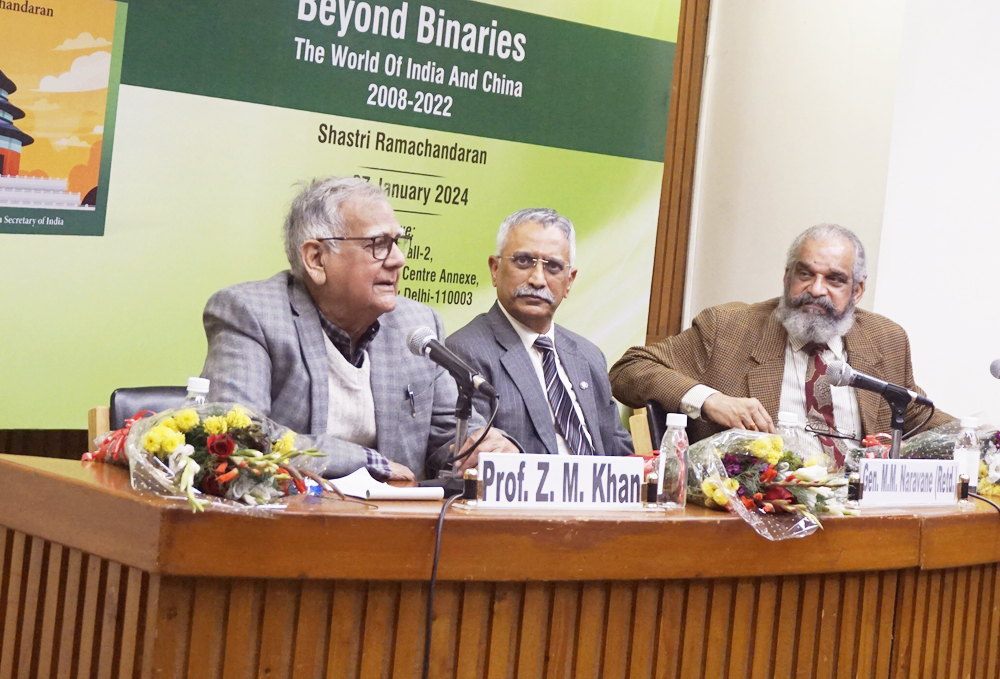
Presiding over the function, secretary general of the IOS, Prof. Z.M. Khan observed that the author started with common things and then he unfolded big things. He talked of two civilizational countries who had great civilization and culture. He said that the development process of China was very fast. He emphasized the need for cooperation between the two countries. Referring to the book, he said that Shastri Ramachandaran covered many things during the period under review. As such, the book was very useful for researchers and policy makers. They should consult the book both academically and practically. He said that regional and cultural perspective should be factored in while surfing the book. He took the opportunity to briefly explained the activities of the Institute.
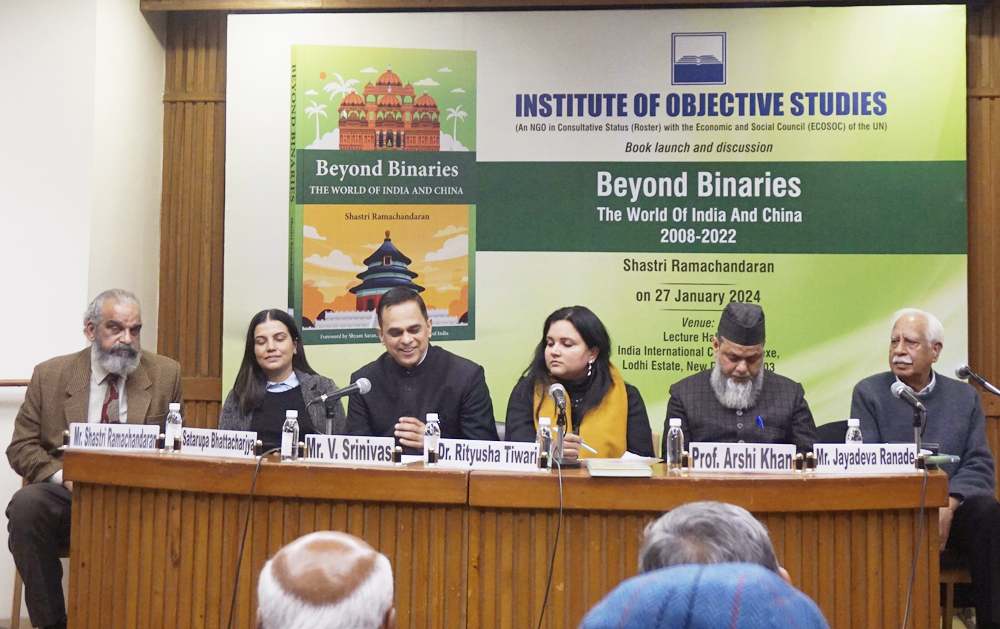
Book release function was followed by the panel discussion. Rityusha Tiwari, faculty, Delhi University conducted the proceedings as moderator. V. Srinivas, secretary to Government of India and director general, National Centre for Good Governance (NCGG) initiated the discussion by saying that he developed interest on China. He collected information on China from Xinhua website and the Chinese newspaper, Global Times. He explained how Chinese development story went up and how the country managed economic imbalance. There was a lot of trade balance between China and the US. China was the third largest economy of the world. She stuck to the policy of three children norm. He commented on the slowing down of Chinese economy and promotion to start-ups. There were linkages of the past between China through Buddhism and Buddhist paintings. This century belonged to Asia and rejuvenation of the countries in the continent should be speedy. India and China should show pragmatism and collaborate, he stressed.
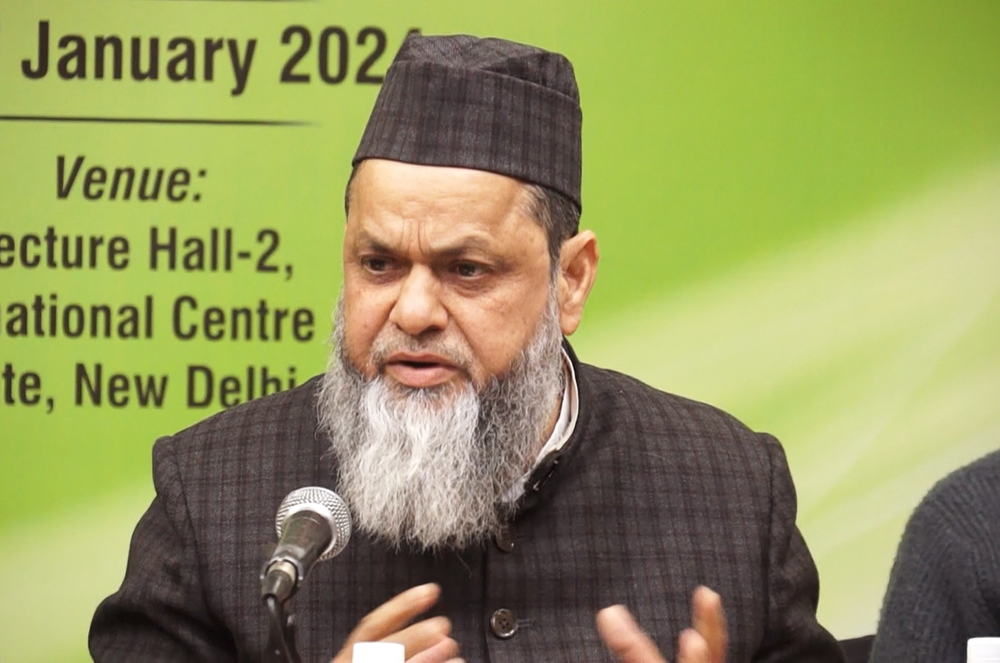
Prof. Arshi Khan, professor of Political Science, Aligarh Muslim University, held that the book was academic and a very valuable publication. The book had been written in an analytical manner. The value of the book could be gauged from the fact that six IFS officers appreciated it. Referring to the study of political science, he said that Machiavelli was the father of the subject. Commending the formidable research done by the author, he observed that the publication would be good for the future generation. Jayadeva Ranade, member, National Security Advisory Board (NSAB) and president, Centre for China Analysis and Strategy (CCAS), emphasized that relations between India and China should improve and they should be bilateral. He said that China’s ambition was to become number one and the world should follow her and be subordinated to it. She also wanted to reclaim the territories which were lost 100 years ago. Chinese incursions happened whenever a Chinese dignitary visited India. This could not be described as a friendly act, he noted.
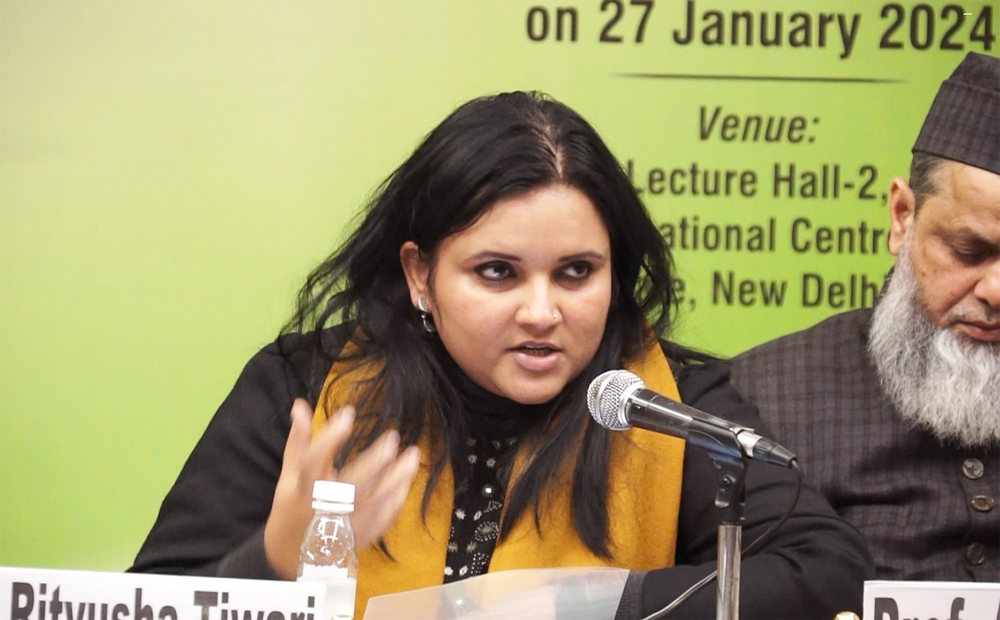
Rityush Tiwari said that hawkish attitude of China defied solution to the border issue. China had a disputed nationalism. Nobody knew what kind of image Chinese had built up, she added. Satarupa Bhattacharjya, journalist, who worked in China, India and Sri Lanka, observed that the US was the biggest beneficiary from China. India was a regional military power, she noted.
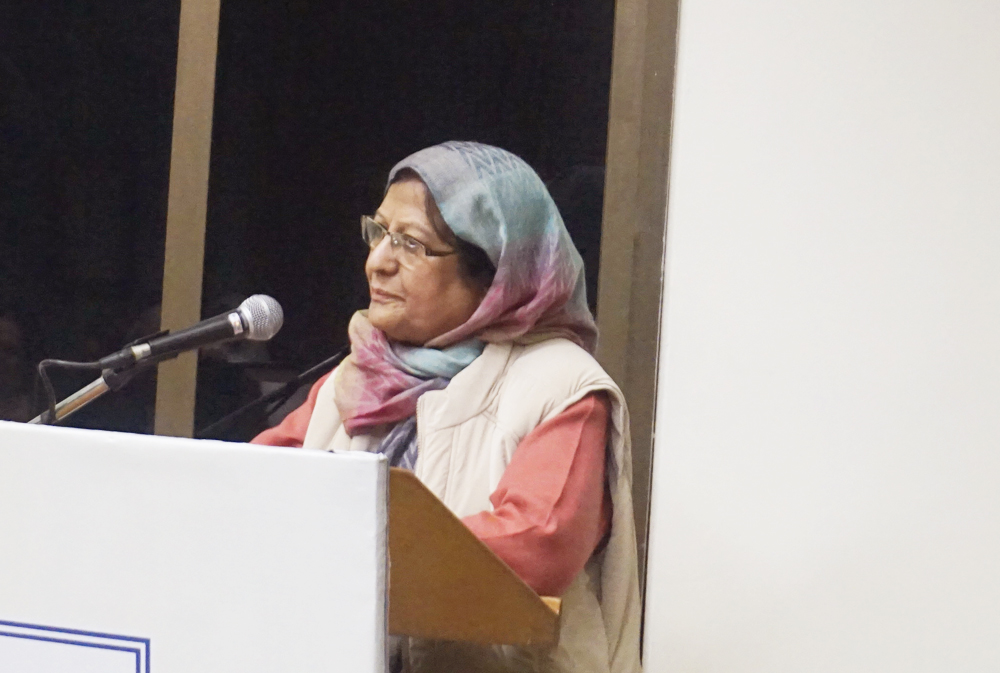
The function concluded with the assistant secretary general, Prof. Haseena Hashia, extending a vote of thanks to the attendees.
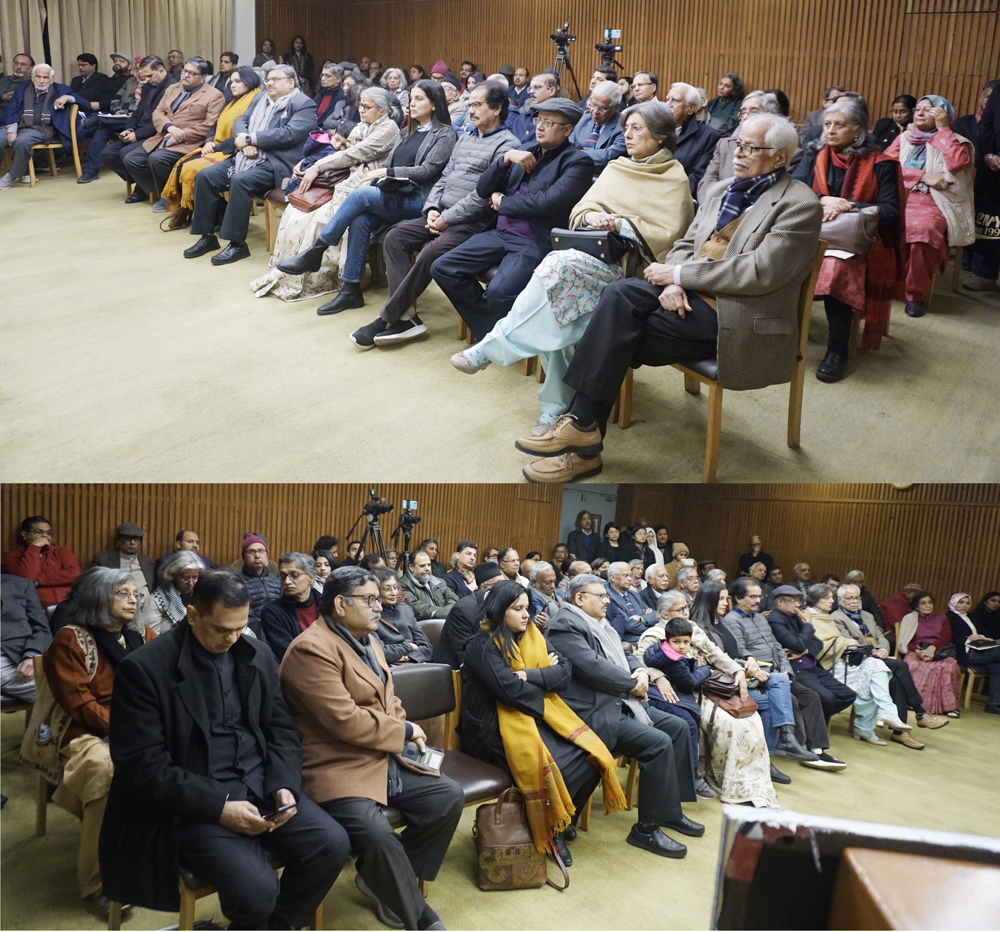
Press note
Go Back